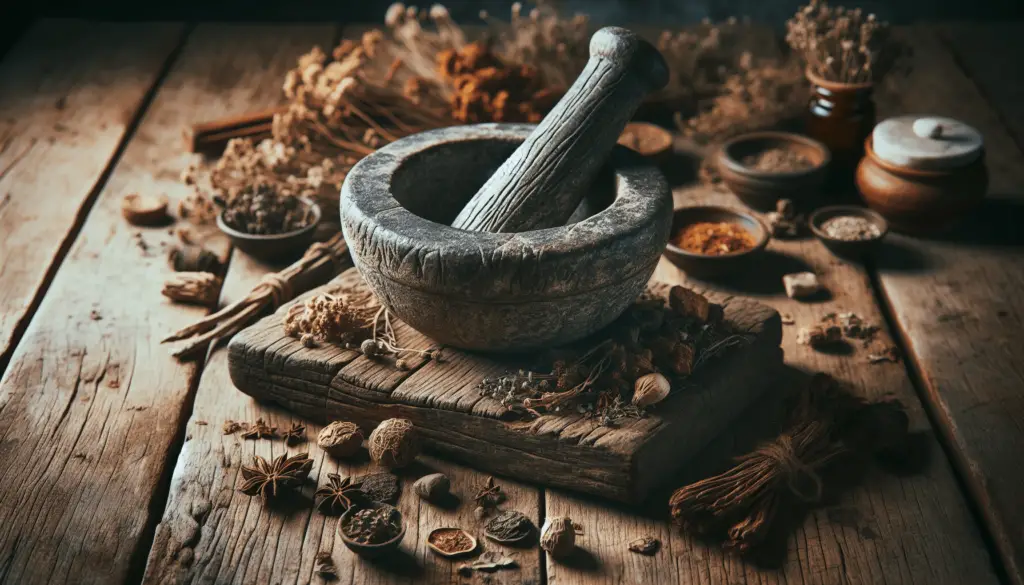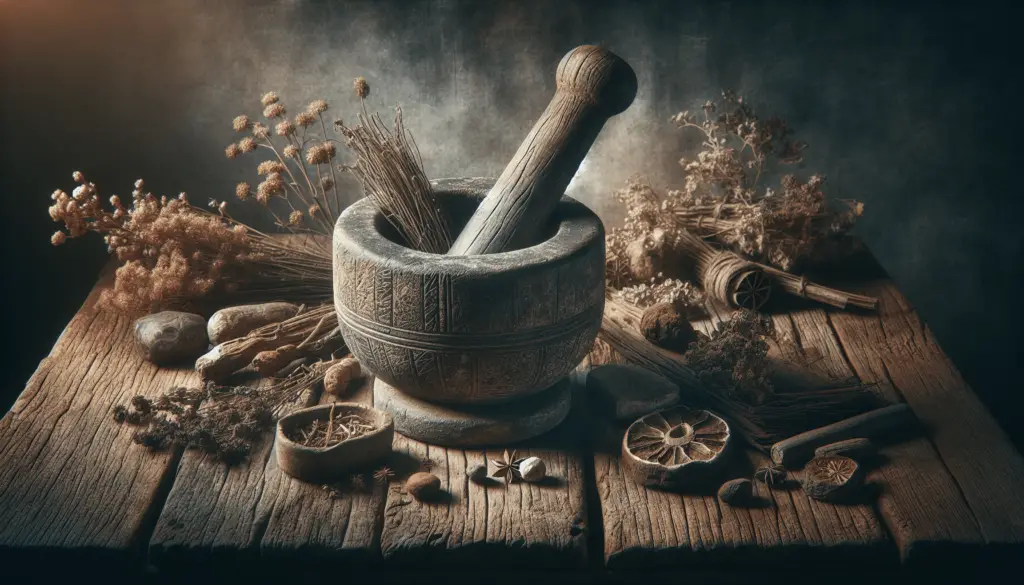Have you ever wondered what role traditional medicine plays in healthcare after a collapse? In times of crisis, traditional healing methods often become more prevalent as access to modern healthcare diminishes. Let’s explore the importance of traditional medicine in post-collapse healthcare systems.

Understanding Traditional Medicine
Traditional medicine refers to the healthcare practices, approaches, knowledge, and beliefs incorporating plant, animal, and mineral-based medicines, spiritual therapies, manual techniques, and exercises, applied singularly or in combination to maintain well-being, treat, diagnose, or prevent illness.
Traditional medicine encompasses a broad range of healing practices and techniques that have been passed down through generations. It often focuses on holistic approaches to health and wellness, treating the body, mind, and spirit as interconnected.
Emphasis on Holistic Healing
One of the key principles of traditional medicine is the emphasis on holistic healing. Traditional medicine practitioners believe that health is influenced by various factors, including lifestyle, emotional well-being, and environmental influences. This approach considers the entire individual, not just specific symptoms or diseases.
Integration of Spiritual Therapies
Traditional medicine often incorporates spiritual therapies that address the spiritual and emotional aspects of health. Practices such as meditation, prayer, and rituals are used to promote healing, balance, and well-being. This holistic approach recognizes the interconnectedness of physical, emotional, and spiritual health.
Importance of Traditional Medicine in Post-Collapse Healthcare
In times of crisis or collapse, access to modern healthcare facilities and medications may become limited or unavailable. Traditional medicine plays a crucial role in filling this gap by providing alternative healing methods that can be easily accessed and utilized by communities.
Accessibility and Affordability
Traditional medicine is often more accessible and affordable than modern healthcare services, making it a valuable resource in post-collapse scenarios. Many traditional healing practices use locally available resources, such as herbs, roots, and other natural ingredients, reducing the dependence on external supplies.
Self-Sufficiency and Resilience
Traditional medicine promotes self-sufficiency and resilience within communities by empowering individuals to take charge of their health and well-being. By utilizing local knowledge and resources, communities can address their healthcare needs independently, even in the absence of external support.
Cultural Preservation
Traditional medicine plays a vital role in preserving cultural heritage and knowledge passed down through generations. In post-collapse situations, traditional healing practices help maintain cultural identity and strengthen community bonds by honoring ancestral wisdom and traditions.
Traditional Medicine Practices in Post-Collapse Healthcare
During a collapse or crisis, traditional medicine practices become essential for managing common health issues and promoting overall well-being within communities. Let’s explore some of the key traditional healing methods used in post-collapse healthcare.
Herbal Medicine
Herbal medicine involves the use of plants and plant extracts for medicinal purposes. Many traditional healing practices rely on herbal remedies to treat a wide range of health conditions, from minor ailments to more serious illnesses. Herbal medicine is often accessible, affordable, and effective, making it an integral part of post-collapse healthcare systems.
Traditional Healing Rituals
Traditional healing rituals are ceremonies or practices that aim to promote healing, balance, and well-being. These rituals often involve spiritual elements, such as chanting, prayer, or the use of sacred objects. Traditional healing rituals can help address physical, emotional, and spiritual health issues, offering a holistic approach to healing.
Manual Therapies
Manual therapies, such as massage, acupuncture, and acupressure, are common traditional healing practices used to address various health concerns. These techniques focus on manipulating the body’s energy flow to restore balance and promote healing. Manual therapies can be effective in managing pain, improving circulation, and enhancing overall well-being.
Integrating Traditional and Modern Medicine
In post-collapse healthcare systems, integrating traditional and modern medicine can lead to more comprehensive and effective healthcare services. By combining the strengths of both approaches, communities can address a wide range of health issues and improve overall health outcomes.
Collaborative Healthcare Practices
Collaborative healthcare practices involve traditional healers working alongside modern healthcare providers to deliver holistic care to patients. This approach combines the knowledge, skills, and resources of both traditional and modern medicine, offering patients a more inclusive and well-rounded healthcare experience.
Education and Training Programs
Implementing education and training programs that bridge the gap between traditional and modern medicine is essential for promoting integrated healthcare practices. By providing traditional healers with scientific knowledge and modern healthcare providers with an understanding of traditional healing practices, communities can benefit from a more comprehensive approach to healthcare.
Research and Evidence-Based Practices
Conducting research on traditional healing methods and documenting their effectiveness can help validate the role of traditional medicine in post-collapse healthcare. By using evidence-based practices, communities can ensure that traditional healing methods are safe, reliable, and appropriate for addressing health concerns.

Conclusion
Traditional medicine plays a vital role in post-collapse healthcare systems by providing accessible, affordable, and culturally relevant healing practices. By integrating traditional and modern medicine, communities can enhance their healthcare services and improve overall health outcomes. The preservation of traditional healing practices is essential for maintaining cultural heritage and promoting self-sufficiency within communities. Embracing the holistic approach of traditional medicine can benefit individuals and communities alike, ensuring health and well-being in times of crisis.
